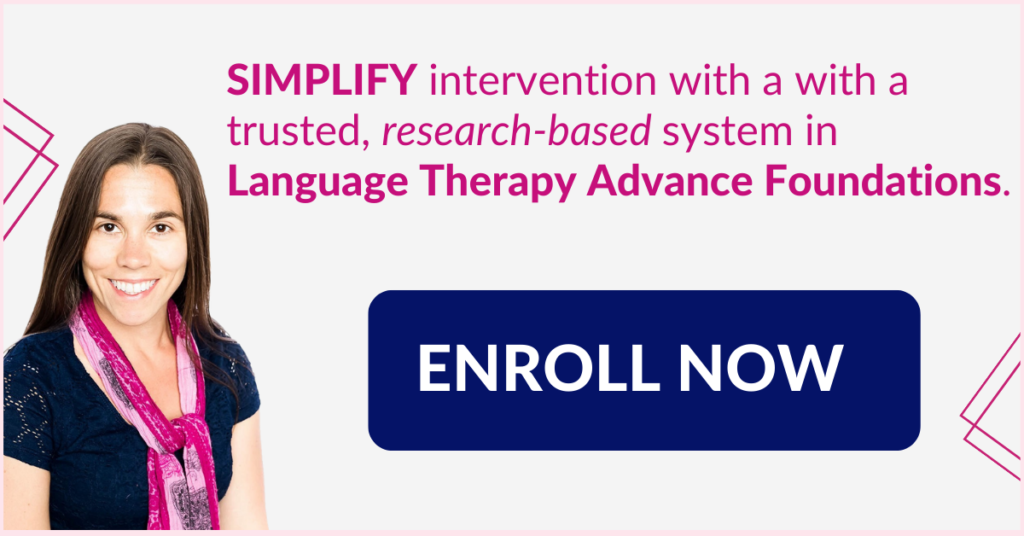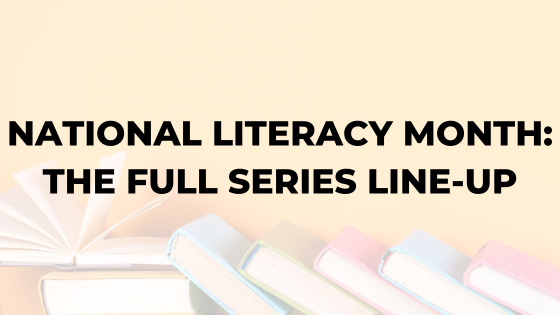In the month of September 2024, the Be Podcast Network partnered with Reading Is Fundamental for a campaign designed to spread awareness of effective literacy practices. As part of this effort I hosted a series of guests on De Facto Leaders to speak on topics relating to language, literacy, and advocacy.
Reading Is Fundamental is a nonprofit that focuses on connecting educators and families with materials and training aligned with evidence-based literacy instruction. Not only is their model aligned with the science of reading; they also offer unique book ownership solutions for professionals and families to address book equity issues. You can learn more about Reading Is Fundamental here.
I wanted to create a space where my listeners could find all episodes in the series in one location.
Below you’ll find links to each episode with a brief description of the episode and the guest bio.
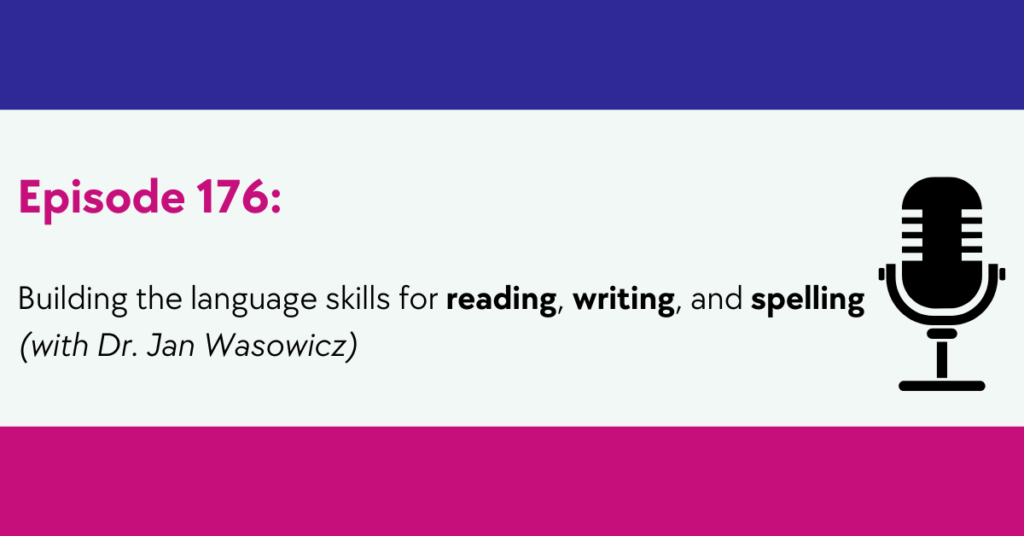
Interview highlights:
✅Do we need a “writing rope” to supplement the “reading rope”? Or should reading, writing and language be woven into one literacy framework?
✅Pragmatics, executive functioning, and metalinguistic awareness: How do these components fit in to effective literacy instruction?
✅Does working on reading improve spelling? Does working on spelling improve reading?
✅Should professionals work on linguistic skills in stages? When/how should professionals start working on morphology in elementary school?
✅Defining “print to speech” and “speech to print” approaches (with specific examples).
Dr. Jan Wasowicz has more than 40 years of experience as a speech-language, literacy, and learning specialist working with students in a variety of educational settings, including public schools, Head Start programs, and private practice. Dr. Wasowicz is frequently invited to speak about best practices in literacy assessment and instruction and has taught numerous undergraduate and graduate courses, holding faculty positions at Northwestern University, Elmhurst College, Rush–Presbyterian–St. Luke’s Medical Center, and Governors State University. Her credits include articles published in scholarly journals and U.S. patents for her inventions of literacy software programs including Earobics® and Spelling Performance Evaluation for Language and Literacy (SPELL-3).
Dr. Wasowicz is an author of SPELL-Links to Reading & Writing and lead moderator of the SPELLTalk multi-disciplinary professional listserv. She also currently serves as an advisory board member of The Reading League of Illinois and an external consultant for Purdue University’s inter-disciplinary initiative to strengthen teacher preparation using science-based methods. Dr. Wasowicz is an ASHA-certified, IL-licensed, and FL-licensed speech-language pathologist and an ASHA Board Certified Specialist in Child Language and she holds a professional educator license with multiple endorsements from the State Teacher Certification Board of Illinois. She is the founder, president and CEO of SPELL-Links | Learning By Design, Inc., and she maintains a small private practice in IL via tele-practice and in FL serving students with oral and written language disorders.
Listen to the full episode with Dr. Wasowicz here.
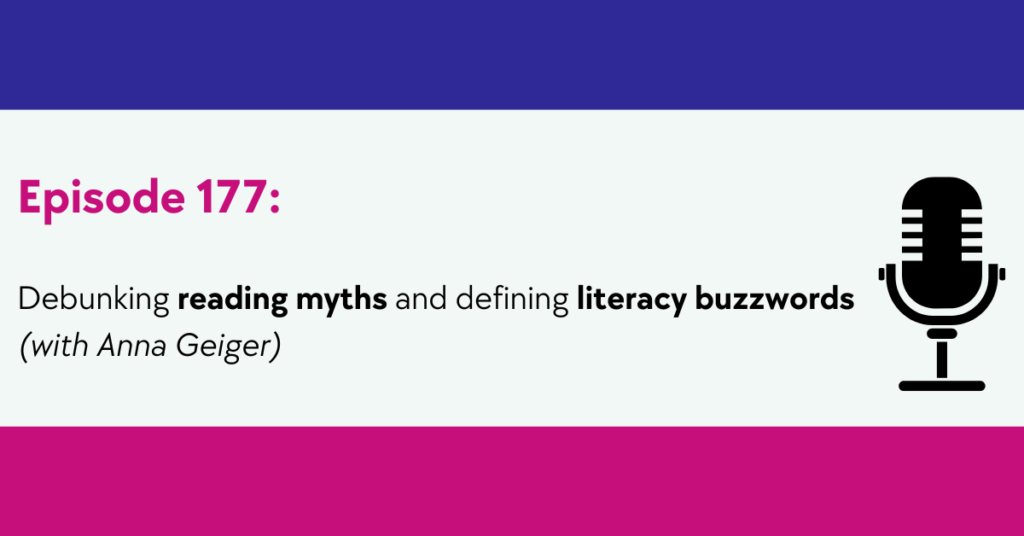
Interview highlights:
✅The difference between balanced literacy and structured literacy.
✅Decodable texts vs. predictable texts.
✅What is three-cueing and why does it encourage poor reading habits?
✅Using syntactic and context clues: Necessary, but not sufficient for decoding.
✅Early literacy instruction: Play-based learning vs. playful learning.
✅Finding the joy in reading and teaching: Can you find joy in something if you haven’t been given the skills to do it?
Anna Geiger is a former teacher, mom of six, the founder and owner of The Measured Mom, host of the TripleR Teaching podcast, and author of books such as “Reach all Readers”. She was a balanced literacy advocate for twenty years. As both a classroom teacher and teacher educator, she promoted three-cueing using leveled texts. She taught phonics, but didn’t use a scope and sequence. She provided very little direct instruction because she was sure it would bore students.
Fast-forward to 2019, when she began to realize that many of her teaching practices weren’t backed by research. Anna became Orton-Gillingham certified and earned a Science of Reading graduate certificate. She currently runs The Measured Mom website, which includes easy-prep resources that your students will love so much they’ll forget they’re learning.
Listen to the full interview with Anna here.
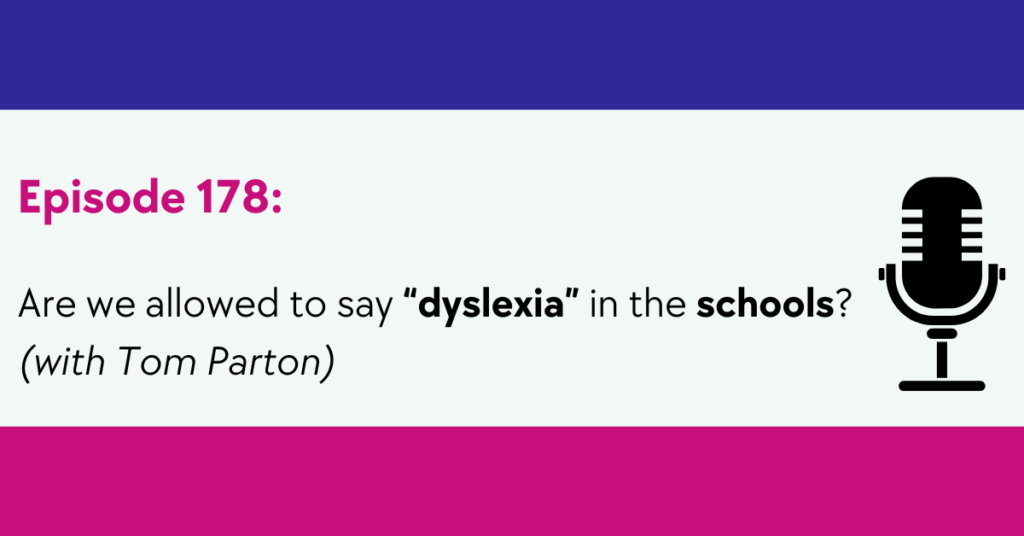
Interview highlights:
✅What do federal guidelines require when it comes to identifying and serving students with reading/writing disabilities?
✅Picking the right battles to fight: Do we focus on the labels or the services and curriculum?
✅Who is qualified or responsible for diagnosing dyslexia?
✅The ethical problem with giving up on word-decoding in secondary school.
✅What skills do students need to effectively use assistive technology for reading, writing, and spelling?
Tom Parton is a private Speech Language Pathologist in Normal, Illinois. He retired after 35 years of public-school practice. Tom is President of Everyone Reading Illinois and is a member of ERI’s Legislative Committee. Tom has presented on autism and language/literacy topics at local, state, and national conferences. Tom participated in the ISBE Reading Instruction Advisory Group and Teachers of Reading Certification task forces. He is currently a member of the ISBE Dyslexia Handbook revision team. He is past-president of the Illinois Speech-Language-Hearing Association and is ISHA Honors Committee co-chair and a member of ISHA’s Leadership Development Committee. Tom is the 2024 chair of the American Speech Language Hearing Association Committee of Ambassadors.
Listen to my full interview with Tom here.
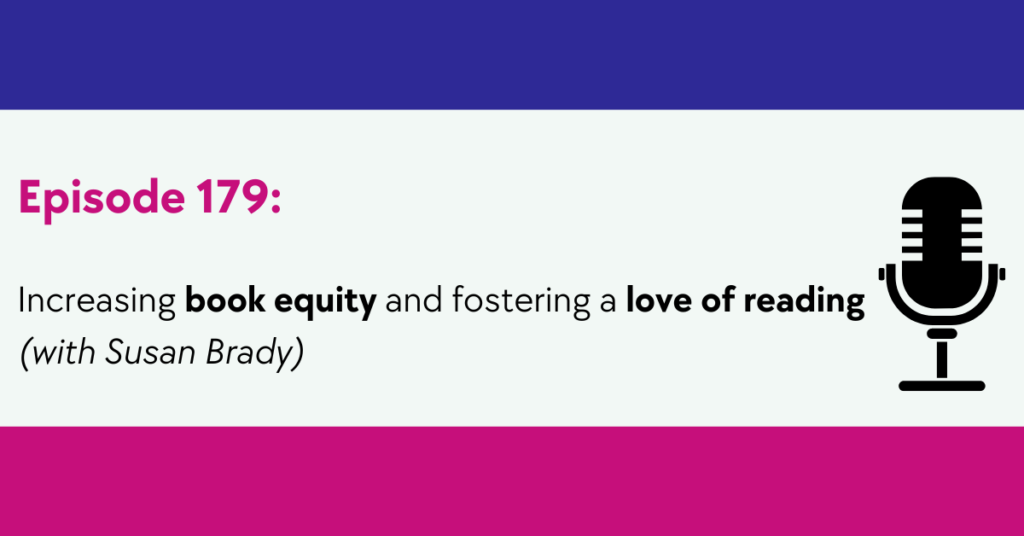
Interview highlights:
✅Are reading teachers getting the pre-service training they need to critically evaluate research and implement instructional practices?
✅Relying a curriculum versus leveraging a curriculum to guide your practice.
✅How to start a book club and get students excited about reading.
✅Where to find inexpensive or free books for schools and families.
✅Navigating logistical and equity issues when hosting community events and running extracurriculars.
Susan Brady has been in the teaching profession for over 40 years. She worked in a private school where she taught first grade and kindergarten. Sixteen years ago she began work in the public schools as a kindergarten teacher. In 2008, she received her Master’s Degree in Reading from Governors State University and became a Reading Specialist. She moved to middle school 5 years ago and works with small groups, large groups, and push-ins. She also has started and run engaging book clubs for her students to help get them excited about reading.
Listen to my interview with Susan here.

Interview highlights:
✅The relationship between reading challenges and the school-to-confinement pipeline.
✅Why “behavior problems” could be related to language processing, reading, or writing challenges.
✅When youth become involved with the justice system, how do they get access to special education services (including language therapy)?
✅“They should know better”: Why we can’t assume kids comprehend language in the school discipline handbook.
✅A case for continuing direct language therapy in high school (and why therapists need support from school leaders in making this happen).
Dr. Shameka Stewart is an Associate Professor of Communication Sciences and Disorders and the Juvenile Forensic Speech-Language Pathologist(r). Dr. Stewart is also a special education advocate trained by the Wright’s Law training center. Dr. Stewart’s clinical and scholarly work specializes in Juvenile Forensics, Law Enforcement Interaction with youth with CD, child language disorders, and augmentative and alternative communication (AAC). Her primary research focuses on the Confluence and Impact of cognitive and communication disorders on the school-to-confinement pipeline, status offenses, involvement with the criminal justice system, law enforcement interaction, and criminal recidivism in youth placed at-risk for delinquency and crime (especially Black and Brown youth from under-resourced areas). Dr. Stewart is also a clinically certified and licensed speech-language pathologist and is licensed to practice in Maryland, Washington, D.C., and multiple other states. Through her work, Dr. Stewart has created cutting edge social justice and juvenile justice specialty courses for graduate CSD students, nationally known training programs for law enforcement and legal counsel, and national and international CE workshops and training for licensed SLP clinicians, students, and families of children with special needs.
Listen to my interview with Dr. Stewart here.
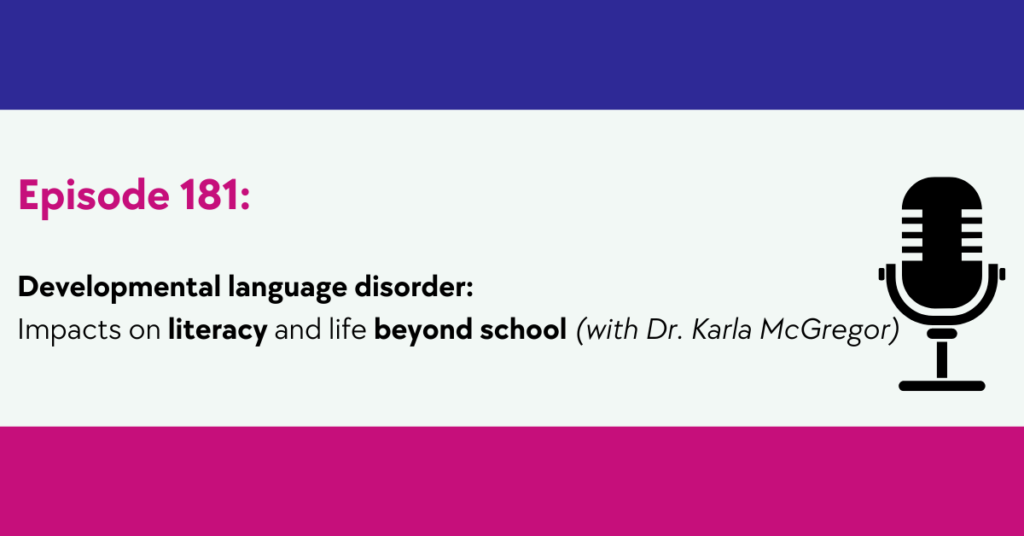
Interview highlights:
✅Developmental language disorder: Characteristics and overlaps with conditions like ADHD, autism, dyslexia, and auditory processing disorder.
✅School teams are “permitted” to use the term “DLD” in the schools. What does that mean in practice?
✅How language disorders impact important life skills such as the driver’s test or understanding your Miranda rights.
✅Universal screeners: Reading screeners are an opportunity to identify DLD, but will they catch every child who needs services?
Dr. Karla K. McGregor, Ph.D., CCC-SLP is a Senior Scientist at Boys Town National Research Hospital in Omaha, NE, USA, where she also serves as the Senior Director of the Center for Childhood Deafness, Language and Learning. She is a Professor Emerita at the University of Iowa and a founding member and Chair of DLDandMe.org. Dr. McGregor’s scholarly work on developmental language disorder is funded by the National Institutes of Health and she has also benefited from the support of the National Science Foundation and the American Speech-Language-Hearing Association. She is the former Editor for the Journal of Speech-Language-Hearing Research. Her awards include Honors of the American Speech-Language-Hearing Association and the Kawana Award for Lifetime Achievement in Publishing. She has been fortunate to mentor 12 doctoral students, six post-doctoral scholars, and numerous early-career scientists.
Listen to the interview with Dr. McGregor here.
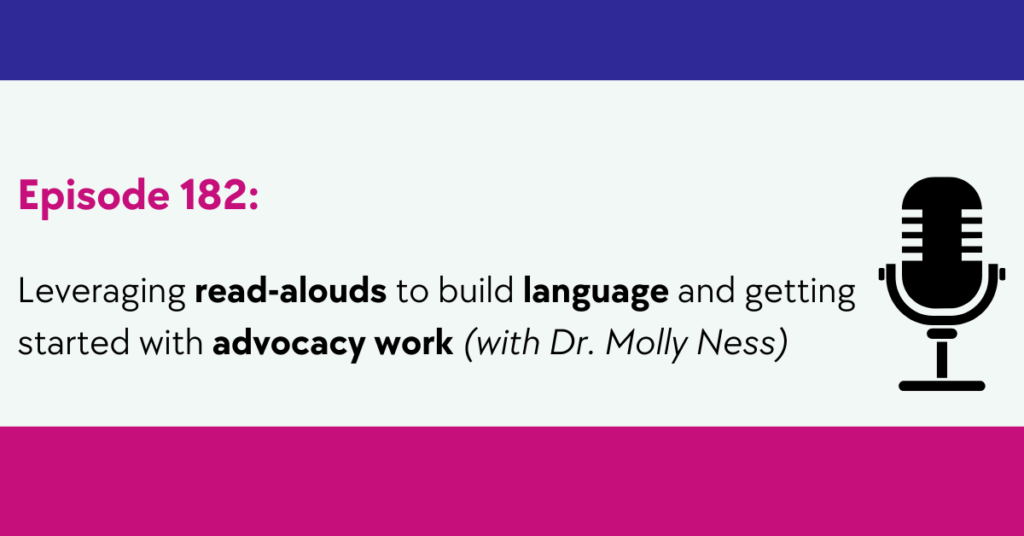
Interview highlights:
✅The impact of vocabulary on comprehension.
✅The science of reading as an evolving body of work instead of a trend or curriculum.
✅Book deserts: Concerning statistics and how to help.
✅Getting started with policy briefs and advocacy work.
✅Think-alouds and read-alouds: Why they’re not just for younger kids.
Dr. Molly Ness is a former classroom teacher, a reading researcher, and a teacher educator. She earned a doctorate in reading education at the University of Virginia, and spent 16 years as an associate professor at Fordham University in New York City. The author of five books, Molly served on the Board of Directors for the International Literacy Association and is a New York state chapter founder of the Reading League. Dr. Ness has extensive experience in reading clinics, consulting with school districts, leading professional development, and advising school systems on research-based reading instruction.
She provided literacy leadership for nationally recognized literacy non-profits, as well as major educational publishers. In 2024, Molly was invited to serve on the New York State Dyslexia Task Force. A frequent speaker and presenter, her happy place is translating the science of reading to schools and teachers. As a tireless literacy advocate, Molly created the End Book Deserts podcast, which brings awareness to the 32 million American children who lack access to books. She is currently writing a forthcoming Scholastic book, helping teachers understand orthographic mapping. In 2024, she founded Dirigo Literacy, a literacy consulting firm supporting schools, districts, and states align with and implement the science of reading.
Listen to my interview with Dr. Ness here.
